Bahadur Sher was born in 1930, in the village of Waisa, Attock (Northern Pakistan). He died in 2018 aged eighty-eight years. Bahadur came to the United Kingdom in 1961 to join his two brothers and other relatives in search of work and to improve his future. His family had wanted him to remain in Pakistan as his other two brothers were away from home but his aspiration to establish a better life took precedence. He was a tall, charming and handsome young man, who farmed his land on the weekdays in the village and a formidable wrestler during the weekends which took him to other places. He originated from a tribe of brave fearless men who would volunteer to keep the community safe. He lived his values of honesty and purposefulness and always tried to defend the truth, a personality trait which became his hallmark in his life in England.
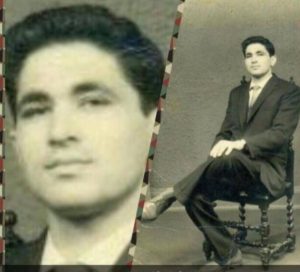
Having an independent mindset from a young age, his rebellious streak led him to seek his fortunes away from the village. He informed his family that he would be going seek work in Karachi; he became a personal gardener to a wealthy family. Without telling his family, he had started to save money whilst he was working in Karachi so that he could immigrate to England. He went back to his ancestral village to get married and then set off for England a few months later.
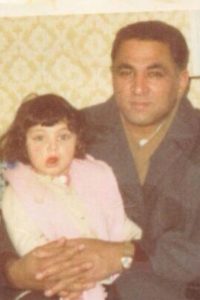 Inayah recalls her father narrating how he found work in a textile mill whilst sharing a house with nine other men, mostly from his home village. The house like most other immigrant households was overcrowded. They would have to share beds and rooms with others, some slept in the day and other at night.
Inayah recalls her father narrating how he found work in a textile mill whilst sharing a house with nine other men, mostly from his home village. The house like most other immigrant households was overcrowded. They would have to share beds and rooms with others, some slept in the day and other at night.
Similar to others, he did not speak much English. He struggled to make himself understood. Once he went to purchase an iron but did not know what to call it and so he said istari (iron) in Punjabi but obviously, the shopkeeper could not understand so to explain he made hissing sounds whilst making ironing movements with his arm.
Bahadur Sher worked in a textile mill for some years with his brothers and other men from his home village, including Inayah’s father-in-law, Ghulam Haider, who was a lifelong friend of her dad. Working at the mill became increasingly difficult as Bahadur and his fellow workmates were being asked to do more and more. In previous years one man was responsible for a large weaving or looming machines but the foreman in charge was now telling the workforce to look after two or three machines at a time. Although Bahadur and his colleagues did not understand or have knowledge of UK employment law, it did not stop them from querying this.
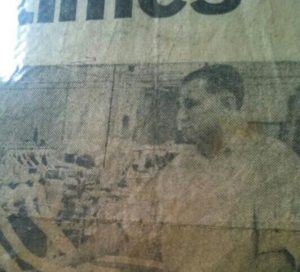
Ghulam Haider was an educated man from a village called Momanpur (also in Attock and close to Waisa). His conscious told him that what they were asked to do was unfair and not in line with safe working practices. He approached his peers and explained that this exploitation was something they must challenge. The union, which was not always supportive of Asian workers at the time, was of little help either so the case went to a tribunal in 1974, one of the first brought about by an Asian textile group of employees.
On the day of the tribunal hearing, much to Bahadur and Ghulam Haider’s disappointment, out of the eleven men that should have attended, only the two of them turned up. The others had been scared off and feared losing their jobs. The day at the tribunal did not run smoothly either; the firm’s staff had been well prepped and fabricated untruths which left the two men frustrated and angry. Bahadur Sher had little understanding of English and when it was translated back to him that the truth was not disclosed, Bahadur with his fiery temper and an ethical man was so angered by the foreman statement he stamped his fist on the bench in court to express his dismay. The judge did not like this behaviour and told him to be quiet or face a charge of contempt of court! They lost the case and now had to face the next dilemma, what would happen to their jobs?
They had been loyal and hard workers, and the firm that they worked for knew this. Surprisingly, the foreman tried to make amends by offering them their jobs back a pay rise. But having high morals and pride they refused the offer due to the employer’s lack of honesty and integrity. So they told the firm that they would not work for them ever, no matter how much money they offered.
Although worried, the two men set out looking for work in mills around the Laisterdyke and Thornton Road area of Bradford which was littered with textile mills. Amazingly within three days of their initial enquiries they had secured employment at different mills (Bahadur at Whitehead Mill and Ghulam in another part of Bradford). Things were much better for Bahadur and Ghulam at these mills as the foreman was very understanding and even allowed employees to offer Salah (obligatory Muslim pray) whilst at work. Bahadur worked at Whitehead Mill for many years to come.
Racism was rife and starkly open in the United Kingdom in the 1950s and 1960s. Bahadur had saved up money to purchase a house and went to see an estate agent. The man that dealt with him was very rude and did not even bother to look at him, he kept saying ‘you can’t buy any property, you are not entitled to a mortgage’ which left Bahadur infuriated. So he went to the bank and withdrew the money, packed it up in a carrier bag and came back to the estate agent and put it on his table! The estate agent face was paralysed with shock at first; he could hardly get a word out of his mouth. But then he jumped at the sight of three hundred pounds which would mean a hefty commission for him.
Bahadur’s name means brave in Urdu and his traits reflected this, Inayah recalls him coming home after a confrontation with a group of skinheads carrying bruises and looking dishevelled. He had been defending the local community from ongoing harassment from skin-head ‘Paki bashing’. He would often say to his children ‘no matter who it is if someone is bullying you do not be intimidated and stand up for your rights and do not walk away!’
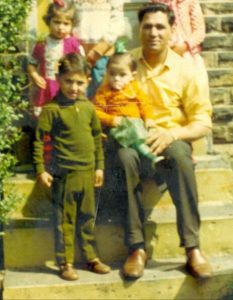
Bahadur Sher had a strong sense of justice and instilled that into Inayah and her siblings from an early age. As children, Inayah recalls her father instructing her and her siblings to help their neighbour, Miss Mills, who was an elderly lady who relied on her walking stick. Inayah and her brother used to escort Miss Mills, to the local church (she was a devout Christian), help with her hygiene care and even emptied her commode! The children of the family also had to sweep the street where they lived from top to bottom every Sunday – they hated this but did it to obey their father. Inayah feels this is where she first developed her sense of community service; it was instilled into her from a very early age. Her dad also cared about nature and the environment which is something that she feels she had inherited.
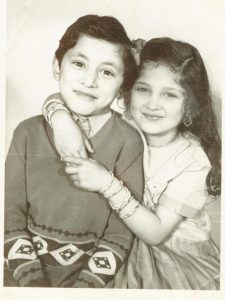
Bahadur was a dutiful father and his sense of pride was in being able to provide for his family, he never took time off from work other a holiday. One day at school, Inayah was beaten very badly by her P.E teacher; she had bruises everywhere and was so scared that she ran home still wearing her P.E kit (t/shirt and shorts). Her mum asked her what had happened and Inayah remembers relaying the events of the day to her. Upon checking her, Inayah mother decided to show her bruises to her father, who had come home that evening. This is something she would have never done due belonging to conservative Muslim family but had to because the situation was so serious.
Inayah’s dad was outraged when he saw the bruises on his daughter’s body. He marched up to the school the next day and demanded to see the head teacher. The head teacher did not avail himself so Bahadur was being passed from pillar to post but being determined he refused to leave until he spoke to him. Eventually, the deputy head teacher spoke to him and in broken English, he shouted ‘you hit my daughter, I hit you!’
There were other times when life at school was difficult for Inayah and her sibling and, her father had to intervene. Once one of her brothers was beaten up for not doing his homework. Inayah recalls her parents instilling a strong sense of religion and belonging into them from an early age. She was served sausages at school and staff would hang around to watch if she ate them, knowing she was not allowed to have pork as it is Haram (forbidden) in Islam, she would slip the sausage into her socks when the teachers looked elsewhere and, then tip into the bin in the toilets later. Again Bahadur would come to school and speak to the staff, in trying to express himself in vain he would shout ‘Muslim daughter!’
Author – Aamnah Rahman
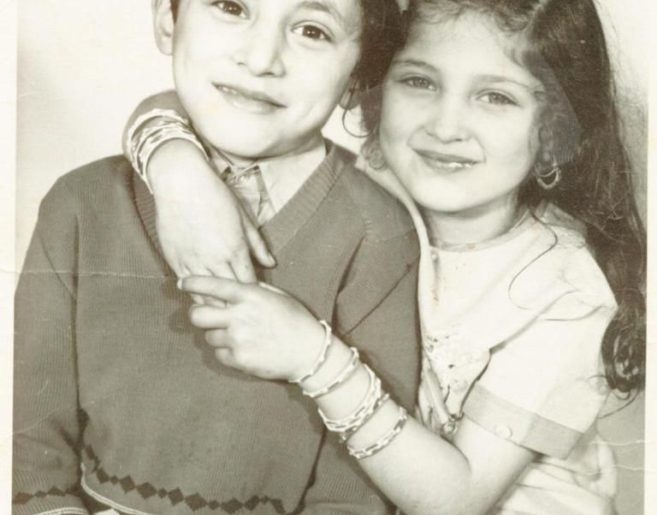
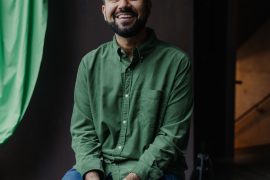
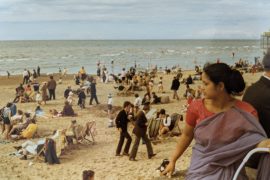
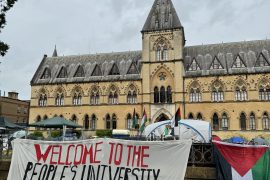
Comments are closed.